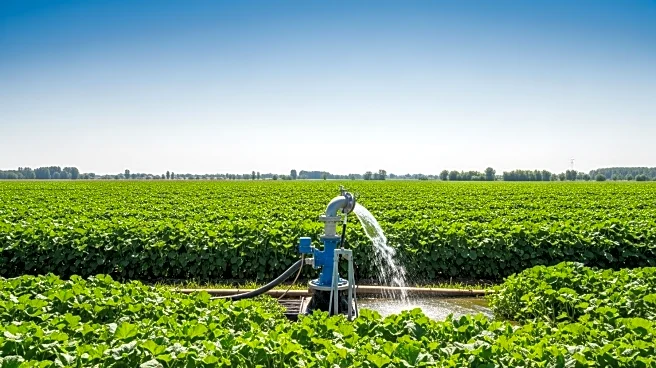What is the story about?
What's Happening?
The Florida Department of Agriculture and Consumer Services (FDACS), led by Commissioner Wilton Simpson, has announced the opening of applications for the Agricultural Regional Projects Program. This initiative offers $25 million in grant funding aimed at supporting large-scale, collaborative agricultural water resource projects throughout Florida. The program is designed to tackle nonpoint source pollution, improve water quality, and promote sustainable water use within the state's agricultural sector. It encourages regional cooperation among agricultural producers, water management districts, local governments, educational institutions, and conservation groups. Commissioner Simpson emphasized the importance of protecting Florida's water resources and highlighted the role of farmers, ranchers, and growers in this mission.
Why It's Important?
This funding initiative is significant as it addresses critical water resource challenges in Florida, a state heavily reliant on agriculture. By focusing on nonpoint source pollution and sustainable water use, the program aims to enhance water quality and ensure the long-term viability of Florida's agricultural sector. The collaboration between various stakeholders, including local governments and conservation groups, is expected to foster innovative solutions and strengthen regional partnerships. This could lead to improved environmental outcomes and support the state's long-term sustainability goals for agriculture and natural resources. The initiative also underscores the importance of science-based solutions in addressing environmental challenges.
What's Next?
Eligible applicants for the grant include private landowners, local governments, soil and water conservation districts, water management districts, and educational or conservation organizations. As applications open, these stakeholders are expected to propose projects that align with the program's objectives. The focus will be on projects that can deliver measurable improvements in water quality and quantity, as well as promote innovative nutrient management technologies. The success of this program could serve as a model for other states facing similar water resource challenges, potentially influencing future agricultural and environmental policies.















